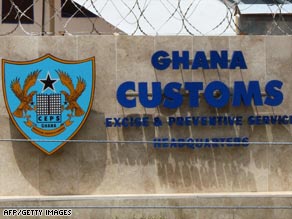Accra (Greater Accra) 23 June '99
The World Bank on Tuesday approved a 32 million-dollar credit to support Ghana's National Functional Literacy Programme.
The credit is from the International Development Association (IDA), the Bank's lending arm for the poorest countries.
It is on standard terms of 40 years maturity, including 10 years grace.
The government would co-finance the project with an additional 13.5 million dollars, a statement issued in Accra by the Africa Region Office of the Bank said.
The credit would be used to finance the delivery of good quality and cost effective basic functional skills in 15 national languages and English.
It said the main objective of the programme is to get an increasing number of Ghanaian adults (15-45 years), particularly women and the rural poor, to acquire literacy and functional skills.
The programme would among other things focus on enhancing the Non Formal Education Division's management capacity, monitor and evaluate outcomes supported by research and tracer studies as well as ensure access to reading materials in local languages.
It said in addition, it would also collaborate with local non-governmental groups to manage loans for income generating activities and to improve and sustain the programme delivery.
The statement said 84 per cent of women in the rural areas are illiterates and that the programme would benefit an estimated one million learners living in areas with high rates of illiteracy and poverty.
The programme would also create greater awareness on health issues such as AIDS prevention and proper sanitation, the statement added.
The programme has achieved considerable success, resulting in the reduction in the national illiteracy rate from 69 per cent in 1989 to an estimated 52 per cent in 1997.
UNESCO describes a functionally literate person as "one who can engage in activities in which literacy is required for effective functioning of his/her group and community, and also for enabling him/her to continue to use reading, writing and calculation for his/her own and the community's development''.
General News of Wednesday, 23 June 1999
Source: --
World Bank approves 32 million dollars loan for Functional Literacy
Entertainment











